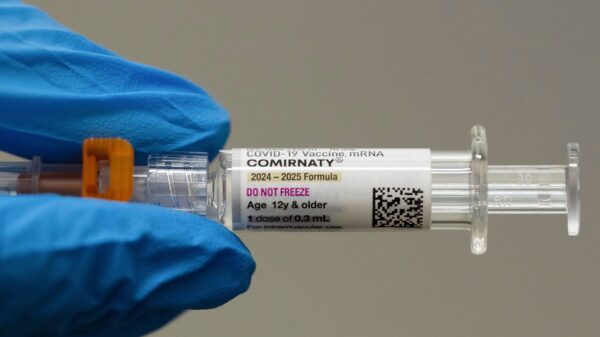Dr. Ou Deng, a research scientist at Moffitt Cancer Center, is leading efforts to understand the role of MSH6 in modulating sensitivity to PARP inhibitors in patients with BRCA-proficient high-grade serous ovarian cancer (HGSOC). At the 2025 AACR Annual Meeting, Dr. Deng and her colleagues presented findings that explore the mechanisms driving PARP inhibitor sensitivity in this specific patient population.
The research highlights that MSH6, a protein associated with mismatch repair, may influence tumor response beyond its traditional function in DNA damage repair. This observation opens new avenues for investigating MSH6 as a potential biomarker for treatment benefit in HGSOC patients.
Ongoing laboratory studies aim to evaluate how MSH6 expression affects downstream signaling pathways that extend beyond DNA repair mechanisms. Dr. Deng emphasized the importance of mapping these processes to better understand MSH6’s role in either treatment resistance or responsiveness.
Linking MSH6 to Clinical Outcomes
Planned translational research will focus on analyzing the correlation between MSH6 expression levels and clinical outcomes for patients undergoing treatment with PARP inhibitors. This is particularly significant, as patients with BRCA-proficient ovarian cancer typically experience limited benefits from PARP inhibition. Validating MSH6 as a predictive biomarker could enhance patient selection criteria for this class of therapy and broaden the therapeutic applications of these agents.
To advance this research, Dr. Deng’s team will conduct a series of immunohistochemistry assays on tumor samples from patients who have received PARP inhibitors. These analyses aim to determine whether MSH6 levels correspond with clinical responses, thus linking molecular findings to patient outcomes.
Dr. Deng stated, “The ultimate objective of this research is to establish MSH6 as a clinically actionable biomarker that identifies patients with BRCA-proficient disease who are most likely to respond to PARP inhibition.” This focus on MSH6 could significantly impact treatment strategies for ovarian cancer, ultimately improving patient outcomes and expanding therapeutic options.
Through these rigorous research efforts, Dr. Deng and her team are working to pave the way for more effective treatments for patients battling high-grade serous ovarian cancer, potentially redefining the landscape of care for this challenging condition.





































































